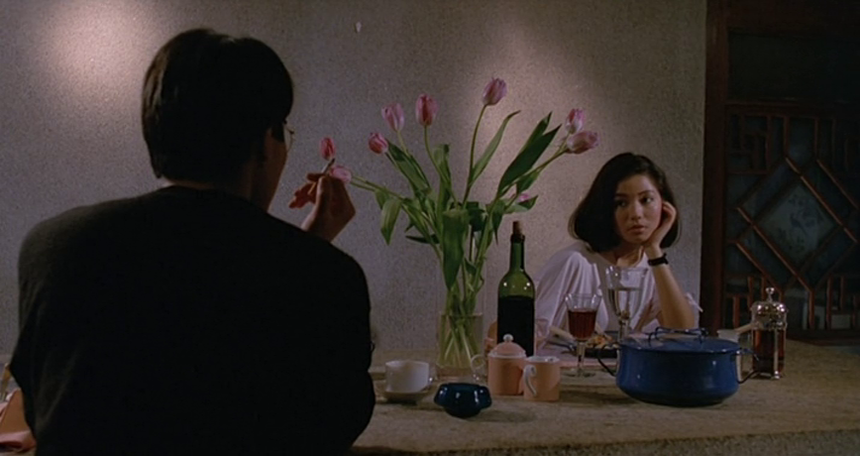|
Despite the film's technical prowess and effective formal designs rooted in low-fi aesthetics and a keen directorial eye for compositions that fit the film's sleazy spatiality, Zola ultimately feels very much like a film uninterested in actually engaging in underlying social issues related to sex work, puritanical notions of morality, legality, and personal autonomy despite a proclivity towards exhibiting these ideals. This, of course, is more than fine if the film aims to be rooted solely in escapism or heightened realism intent on exhibition/representation of a sub-culture not often seen, but ultimately Zola feels uninterested on expanding on its thin source material, offering instead something that feels facile both in theme and characterization. There are a lot of interesting ideas in this film, and the cast does do a great job at embodying the various characters, but ultimately it feels like a film that needed to either be 30 minutes longer or 15 minutes shorter, caught between pointed cultural critique and exhibition of the underseen, under-discussed aspects of contemporary life which leaves it feeling interesting but ultimately more inconsequential than it should be.
0 Comments
Vulnerability unless commodified has no purpose in a contemporary culture that strives for engagement and a facile definition of positivity rooted in subversion instead of acceptance of existential longing. Featuring a familiar conceptual framework, Sweat could have easily been another pointed critique of narcissistic social media culture and the artificial and performative facade it creates over reality. While the film certainly navigates around these ideas, it's the filmmaker's dedication to the principle characterization and her complexities as a person that helps elevate Sweat, ultimately differentiating itself in the way that her journey isn't simplistic or linear but a consistent struggle in service for her underlying identity, as she implicitly searches for a sense of self-worth and happiness that cannot be defined by external forces. In a sense, Sweat is optimistic, determining that humanism and our behavioral impulses will ultimately repudiate the pervasive nature of technology and its effects on the social. Sweat is familiar but genuinely crafted, a film that in its thematic intentions never forgets that the key to success lies in its principle characterization
A little unclear if this is intentionally depraved in its depiction of masculine sexual aggression but this subversive spin on the rom-com feels downright farcical in the way its two male protagonists coerce Cherie towards their desires with no disregard for her as anything more than an object to serve their needs. The film's denouement suggests that the filmmakers know what they are doing, and the tonal elasticity here really stands out. Operating at times like a traditional rom-com yet conceptionally imbued with a commentary that invites investigation into heteronormative gender roles, expectations, and the coercive power dynamics at play, Cherie is a silly rom-com in construction but one that feels conscripted to make a point about the male ego through its formal conception. The film's lighthearted tone when dealing with jokes related to date rape is played for laughs yet they have a dual focus, serving what feels like farcical intentions about the absurdity of normative gender dynamics. Tam's keen directorial style is perhaps a bit more understated in what would feel like his most accessible film to date in his career, yet the interior spaces in this film are strikingly constructed in terms of the mise-en-scene and compositional aptitude.
|
AuthorLove of all things cinema brought me here. Archives
June 2023
|



 RSS Feed
RSS Feed
